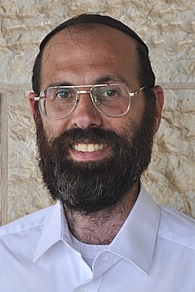You Shall Not Break A Bone In It
הרב אפרים רובינשטיין
The commonly known reason for this mitzvah is that provided by the Sefer Hachinuch (#16): "It is not honor for princes and noblemen to scrape the bones and break them like dogs. This is fitting only for the poor people who are hungry." Perhaps it is possible to explain in a somewhat different way why the Torah commanded not to break the bones, based on a principle of Rav Dessler, mentioned in Michtav M'Eliyahu (vol. I).
We find that when the world lives comfortably, lustful desires increase, since it is easy for people to acheive them, as it says regarding the arayot (incentuous relations), "it is chesed." Arayot are an outgrowth of the trait of chesed, which becomes perverted towards the side of tumah. Therefore, we find in the Gemara Berachot 7a that G-d becomes angry every day. "How long is his anger? -- A single moment." This is in order to "balance" people's traits, so that the great chesed of "the One whom renews in his goodness every day the act of creation," should not tilt them towards wrong.
The Gemara there explains that Bilaam intended to curse them at that moment of anger, as it states:
The prophet said to Israel: "My people, remember, now, what Balak schemed ... in order to recognize the righteous acts of Hashem." (Micha 6:5) G-d said to Israel: Recognize how righteously I behaved with you that I did not grow angry in the days of Bilaam ... This is what Bilaam said to Balak, "How can I anger? -- Hashem is not angry." (Bamidbar 23:8)
However, precisely from this grew Bilaam's deep advice to cause Israel to sin. Since G-d is not angry, but is only bestowing kindness, now is an opportune time to use the trait of lust in order to cause them to sin. This is the meaning of, "and now let me advise you." Now, since G-d has not grown angry, they are likely -- due to the good which is being bestowed on them -- to fall easily into the net of lust.
Based on this principle, we can explain the reason for the mitzvah, "You shall not break a bone in it." (Shemot 12:46) This was a night of great acts of kindness, in which G-d jumped over the houses of Bnei Yisrael. In addition, "He will not permit the destroyer to enter your houses to smite." (Shemot 12:24) The GR"A explains, that even a Jew whose time had come to die naturally that night -- permission was not granted to the destroyer (the angel of death) to smite him. Thus, is this state that the attribute of chesed is completely dominant, there was concern for an increase of lust, and in its wake, spiritual failure. Therefore, the Torah commanded, "You shall not break a bone in it," to curb the lust and not to eat everything. Although it is a mitzvah to eat all the sacrificial meat and not to allow it to stay overnight, yet, the bones, which there is no mitzvah to eat, should serve -- through the prohibition that the Torah placed on breaking them -- as a barrier in the face of intensifying desire.
When the queen of Sheba came before King Shlomo, it says: "The queen of Sheba saw all the wisdom of Shlomo ... and the food at his table and the seating of his servants; the station of his servants and their uniforms; his cupbearers..." (Melachim I 10:4) Rav Shmuel Rosovsky asks, did the queen of Sheba come for this, to feast her eyes on the delicacies of a king? He answers that etiquette at the meals touches upon the foundations of wisdom, and the queen of Sheva wanted to test the nature of "Shlomo's wisdom," how it influences the manners of his men while eating.
In our own way, we can answer the opening question as follows: In the period of Shlomo -- when Bnei Yisrael were supreme, with wealth, peace and tranquility, "Each man under his grapevine and under his fig tree" (Melachim I 5:5), and all the kings were comimg to hear Shlomo's wisdom -- this was a period of great chesed, and the Queen of Sheva wanted to test whether this did not turn into chesed of tumah which leads to increased desire -- "to scrape the bones and break them like dogs." Her conclusion was: "Fortunate are your men -- fortunate are these servants of yours -- who stand before you constantly, who hear your wisdom." (10:8)
קוד השיעור: 3662
לשליחת שאלה או הארה בנוגע לשיעור:

.jpg)



 (1).jpg)

